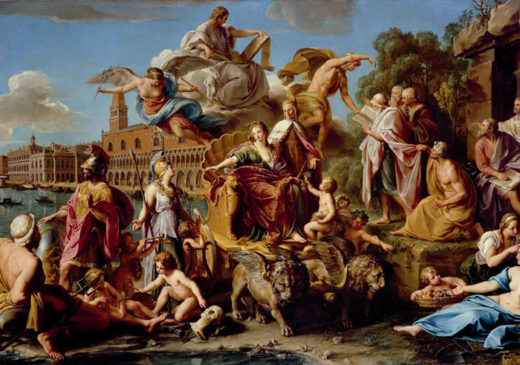Pompeo Girolamo Batoni was an Italian painter who lived during the 18th century. He was known for his portraits and allegorical paintings.
Pompeo Girolamo Batoni (25 January 1708 – 4 February 1787) was an Italian painter who displayed a solid technical knowledge in his portrait work and in his numerous allegorical and mythological pictures. The high number of foreign visitors travelling throughout Italy and reaching Rome during their "Grand Tour" led the artist to specialise in portraits.
Batoni won international fame largely thanks to his customers, mostly British and Irish gentlemen, whom he portrayed, often with famous Italian landscapes in the background. Such Grand Tour portraits by Batoni were in British private collections, thus ensuring the genre's popularity in Great Britain. One generation later, Sir Joshua Reynolds would take up this tradition and become the leading English portrait painter. Although Batoni was considered the best Italian painter of his time, contemporary chronicles mention his rivalry with Anton Raphael Mengs.
In addition to art-loving nobility, Batoni's subjects included the kings and queens of Poland, Portugal, and Prussia; the Holy Roman Emperors Joseph II and Leopold II (a fact which earned him noble dignity); the popes Benedict XIV, Clement XIII, and Pius VI, Elector Karl Theodor of Bavaria; and many more. He also received numerous commissions for altarpieces for churches (in Rome, Brescia, Lucca and Parma, for example) as well as for mythological and allegorical subjects.
Batoni's style took inspiration and incorporated elements of classical antiquity, French Rococo, Bolognese classicism, and the work of artists such as Nicolas Poussin, Claude Lorrain, and especially Raphael. As such, Pompeo Batoni is considered a precursor of Neoclassicism.

